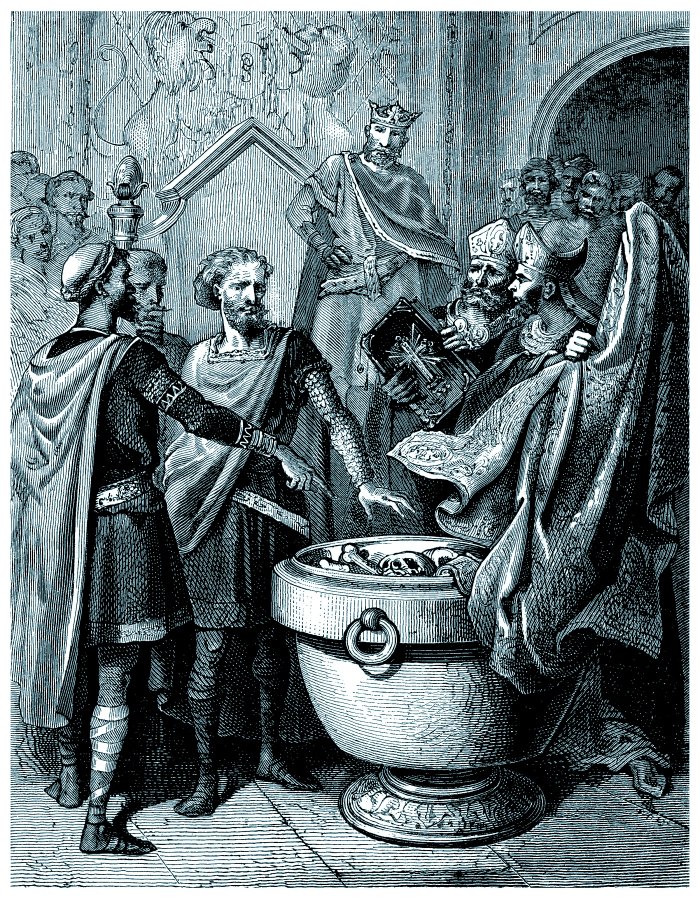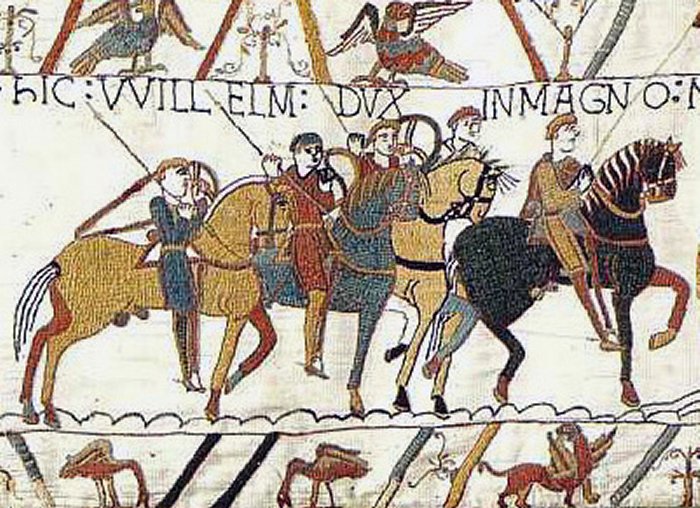William The Conqueror: Ruthless And Powerful Ruler Who Changed Britain Forever
A. Sutherland - AncientPages.com - Wilhelm I Conqueror, also known as "William the Bastard" (ca. 1028 -1087), was King of England and Duke of Normandy.
William the Conqueror & Harold II swearing - 11th century. Image: Adobe Stock - Erica Guilane-Nachez
William was the son of Herleva and Robert I, the Duke of Normandy, France, then known as “Francia”). William was frequently called a bastard, especially by his opponents. The reason was that his mother actually never married his father, Robert, most probably because Herleva was a simple Anglo-Saxon woman and not of noble birth.
Although he was the illegitimate son of the Duke of Normandy Robert the Magnificent (also called "Robert the Devil"), after his father's death in 1035, William was named his successor at only eight years of age. Under the name of William II (in French: Guillaume II), the boy became the new duke of Normandy during a challenging time.
William The Conqueror's Struggle To Gain Power
Corruption, violence, and strong opposition from powerful Norman barons, his bitter rivals, plagued his early reign.
Three of his guardians and his tutor died violent deaths during his childhood. William witnessed the end of his steward, Osbern, whose throat was cut by a Norman rebel while sleeping in William's bed-chamber.
William managed to survive the early years of chaos, both in his own life and in Normandy, with the help of King Henry I of France. From 1046 onwards, he successfully dealt with rebels, troublesome Norman barons, and all those who questioned the right of a bastard to succeed. Then with the support of Henry I, he began to expand his territory.
A late-1800s engraving shows William the Conqueror after the Battle of Hastings. Source
In 1051 the king of England, Edward the Confessor, appointed William as his successor. Edward died in 1066, leaving no direct heirs, and the country was threatened with invasion by two rival claimants, Harald Hardrada, King of Norway, and William, Duke of Normandy.
The English nobles elected to the throne their candidate - Harold Godwin (also called Harold Godwineson or Godwinson), the most powerful of the English lords.
William gathered his army and landed on the island. He was angry; Harold claimed the throne of England for himself, even though he made an oath to William to support his claim. On October 14, 1066, the two armies met in the famous Battle of Hastings.
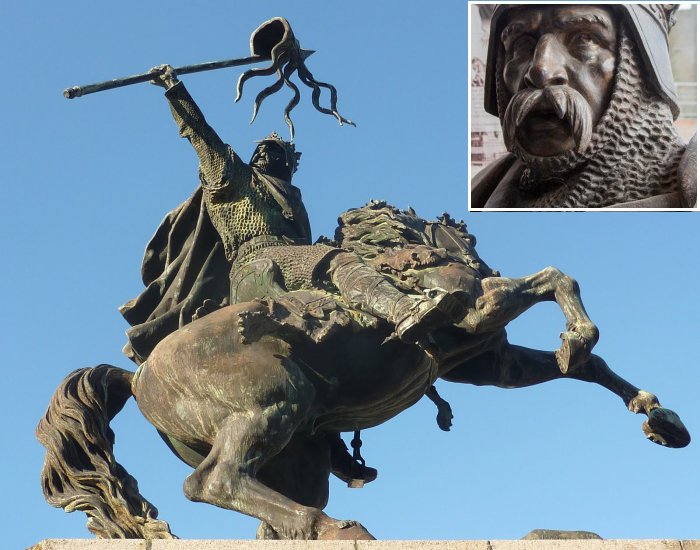 William, I was victorious and he took London without further resistance. Image credit: Man vyi - Public Domain
William, I was victorious and he took London without further resistance. Image credit: Man vyi - Public Domain
According to modern scholars' estimation, each of the sides had between 5,000 and 7,000 men.
William The Conqueror Becomes King Of England
King Harold and his two brothers were killed in the battle. William, I was victorious; he took London without further resistance. He was crowned king of England on Christmas Day, 1066, and ruled until he died in 1087.
However, the conquest of England had not yet ended. Several revolts marked the next five years, and William used them as an excuse to confiscate English land and declare it his property. Subsequently, he distributed the land to his Norman knights, who imposed their unique feudal system.
The following important issue was a nationwide inventory of property landlords and property of the people. William had to determine the taxes he had to pay all his subjects.
The Bayeux Tapestry, chronicling the English/Norman battle in 1066 which led to the Norman Conquest. Image credit: alipaiman - Public Domain
Once an entire picture of England was collated in the Domesday Book, William could send his tax gatherers out. Eventually, the Normans replaced the whole of the Anglo-Saxon aristocracy.
His famous "The Domesday Book" was a detailed register of the population and property of England (now an invaluable source of historical information and still in the Public Record Office in London).
William died on September 9, 1087, in Rouen, France. He had four sons and five daughters; every monarch of England since has been his direct descendant.
He never spoke English and was illiterate, but his influence on England and the English language was enormous.
"William the Conqueror was a fierce warrior that may cause gentler people to shudder. However, our world needs such people. Without them, we might destroy ourselves and our civilizations based on disorganization and a lack of cohesive leadership..." 1
Written by – A. Sutherland AncientPages.com Staff Writer
Updated on February 25, 2023
Copyright © AncientPages.com All rights reserved. This material may not be published, broadcast, rewritten or redistributed in whole or part without the express written permission of AncientPages.com
Expand for referencesReferences:
Ed Sharrow - The Last Battle: The Life of William the Conqueror
Edward Freeman - William the Conqueror
Abbott Jacob, William the Conqueror
- in60Learning, William the Conqueror: The King Who Changed the Course of British History
More From Ancient Pages
-
 Sleipnir: Eight-Legged Horse With Supernatural Strength That Belonged To God Odin
Featured Stories | Mar 21, 2017
Sleipnir: Eight-Legged Horse With Supernatural Strength That Belonged To God Odin
Featured Stories | Mar 21, 2017 -
 Medici Family – Powerful Renaissance Godfathers And Patrons Of Galileo Galilei
Featured Stories | Dec 17, 2018
Medici Family – Powerful Renaissance Godfathers And Patrons Of Galileo Galilei
Featured Stories | Dec 17, 2018 -
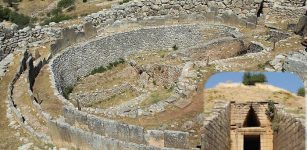 Mycenae Kingdom: Home To King Agamemnon And Tholos Tomb ‘Treasure of Atreus’
Civilizations | Jun 11, 2022
Mycenae Kingdom: Home To King Agamemnon And Tholos Tomb ‘Treasure of Atreus’
Civilizations | Jun 11, 2022 -
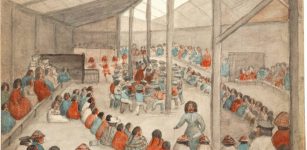 Potlatch: Ancient North American Indian Tradition Of Very Generous Gift Giving
Ancient Traditions And Customs | Sep 12, 2016
Potlatch: Ancient North American Indian Tradition Of Very Generous Gift Giving
Ancient Traditions And Customs | Sep 12, 2016 -
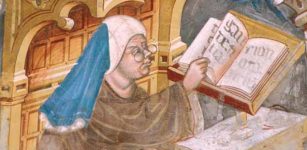 History Of Eyeglasses: One Of The Most Important Inventions Is Lost To History
Ancient Technology | Mar 10, 2016
History Of Eyeglasses: One Of The Most Important Inventions Is Lost To History
Ancient Technology | Mar 10, 2016 -
 Bees Originated From An Ancient Supercontinent Millions Of Years Earlier Than Previously Thought
Evolution | Jul 31, 2023
Bees Originated From An Ancient Supercontinent Millions Of Years Earlier Than Previously Thought
Evolution | Jul 31, 2023 -
 On This Day In History: Eminent Scottish Inventor Graham Bell Born – On Mar 3, 1847
News | Mar 3, 2017
On This Day In History: Eminent Scottish Inventor Graham Bell Born – On Mar 3, 1847
News | Mar 3, 2017 -
 Mysterious Valkyrie Eir Remains An Enigma In Norse Mythology
Featured Stories | Apr 4, 2018
Mysterious Valkyrie Eir Remains An Enigma In Norse Mythology
Featured Stories | Apr 4, 2018 -
 4,500-Year-Old Row Of Giant Monoliths Found – Could Be the Largest In Britain
News | Sep 7, 2015
4,500-Year-Old Row Of Giant Monoliths Found – Could Be the Largest In Britain
News | Sep 7, 2015 -
 Child’s Play: Are Tibetan Hand And Foot Traces The Earliest Example Of Parietal Art?
Archaeology | Sep 18, 2021
Child’s Play: Are Tibetan Hand And Foot Traces The Earliest Example Of Parietal Art?
Archaeology | Sep 18, 2021 -
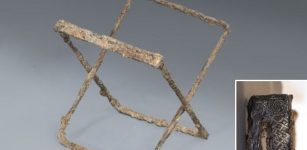 Extremely Rare Medieval Folding Chair Reveals Its Secrets
Archaeology | Oct 13, 2023
Extremely Rare Medieval Folding Chair Reveals Its Secrets
Archaeology | Oct 13, 2023 -
 Mysterious Forest Of Treasure – Why Is It Forbidden To Stay In Nidhivan After Sunset?
Featured Stories | Nov 24, 2021
Mysterious Forest Of Treasure – Why Is It Forbidden To Stay In Nidhivan After Sunset?
Featured Stories | Nov 24, 2021 -
 ‘Aerial Cemetery’ – Ancient Tradition Of ‘Hanging Coffins’
Ancient Traditions And Customs | Sep 9, 2018
‘Aerial Cemetery’ – Ancient Tradition Of ‘Hanging Coffins’
Ancient Traditions And Customs | Sep 9, 2018 -
 Mysterious Disappearance Of The Eilean Mor Lighthouse Keepers Remains Unsolved
Featured Stories | Dec 21, 2018
Mysterious Disappearance Of The Eilean Mor Lighthouse Keepers Remains Unsolved
Featured Stories | Dec 21, 2018 -
 Ancient DNA Reveals “Completely Unexpected” Marriage Rules In Minoan Crete
Archaeology | Jan 16, 2023
Ancient DNA Reveals “Completely Unexpected” Marriage Rules In Minoan Crete
Archaeology | Jan 16, 2023 -
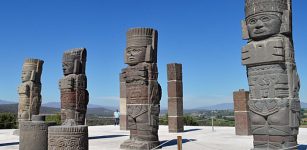 Obscure History Of Atlantean Statues In Ancient Toltecs’ City Of Tula
Artifacts | Oct 19, 2020
Obscure History Of Atlantean Statues In Ancient Toltecs’ City Of Tula
Artifacts | Oct 19, 2020 -
 Mysterious Ancient Giant Jars Made By An Unknown Civilization Discovered In India
Archaeology | Mar 30, 2022
Mysterious Ancient Giant Jars Made By An Unknown Civilization Discovered In India
Archaeology | Mar 30, 2022 -
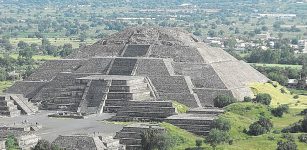 Pyramid Of The Moon At Teotihuacán – Underground Tunnel And Chamber Found
Archaeology | Oct 29, 2018
Pyramid Of The Moon At Teotihuacán – Underground Tunnel And Chamber Found
Archaeology | Oct 29, 2018 -
 Tavern And Mysterious Tools Discovered In North Carolina – Stunning Ancient Time Capsule
Archaeology | Jun 19, 2019
Tavern And Mysterious Tools Discovered In North Carolina – Stunning Ancient Time Capsule
Archaeology | Jun 19, 2019 -
 Relics From Day-To-Day Life At Shakespeare’s Home – Now Shown In New Virtual Exhibition
Archaeology | Dec 11, 2020
Relics From Day-To-Day Life At Shakespeare’s Home – Now Shown In New Virtual Exhibition
Archaeology | Dec 11, 2020

